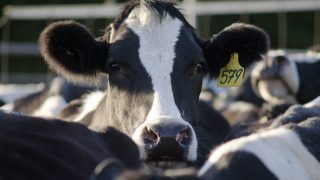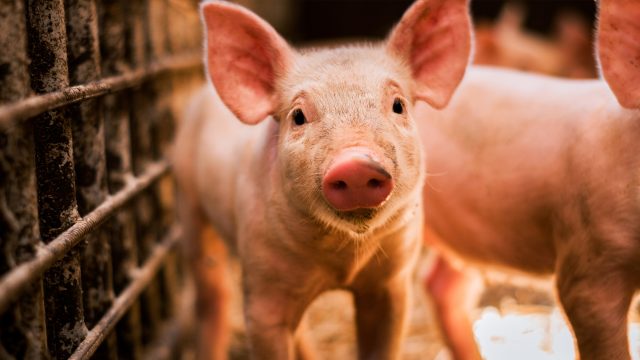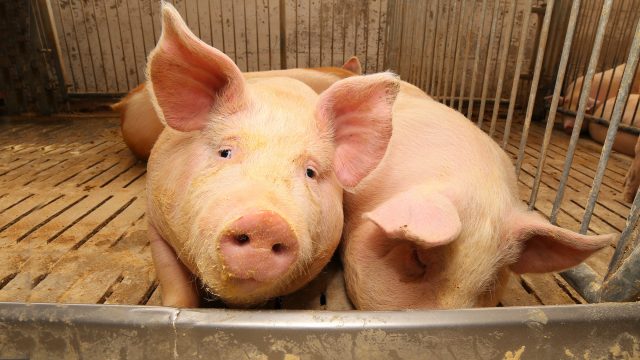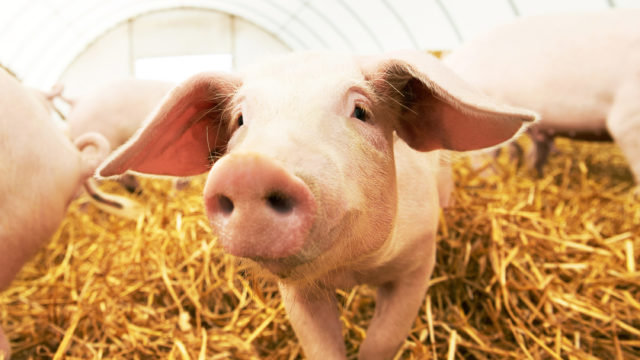
REPORT: 95 Percent of Consumers Prefer “Climate-Friendly” Products, But Labels Oversell Emission Reductions
New report reveals how misleading labels lead to increased confusion among consumers searching for more sustainable, less environmentally damaging products.
Contact: media@aldf.org
SAN FRANCISCO — The Animal Legal Defense Fund released a report showing that consumers increasingly care about the sustainability of food products at a time when misleading “greenwashing” claims have become more prevalent, and companies use so-called “climate-friendly” labels to appeal to shoppers who want to reduce their carbon footprints.
Results from the report include:
- 95 percent of participants surveyed prefer climate-friendly products if given the option.
- 91 percent will choose the product labeled “low carbon” with all else equal between two products.
- 66 percent are likely to pay more for a product labeled “climate friendly.”
- 57 percent are likely to pay more for a product labeled “low carbon.”
- 87 percent are likely to trust a label that says that the product is “climate friendly.”
- 84 percent are likely to trust a label that says that the product is “low carbon.”
- 75 percent identified beef as having the highest carbon footprint when choosing among beef, “climate-friendly” beef, pork, chicken, and tofu.
In the last decade, misleading “greenwashing” claims have increased in the meat and dairy industries, even though meat requires more land, water, and energy than any other source of protein. Industrial animal agriculture currently occupies more than a third of the world’s habitable land area, is responsible for 30 percent of current global biodiversity loss, and accounts for 20 percent of global freshwater use. Despite their colossal environmental impact, meat and dairy provide a mere 18 percent of calories consumed, making their production incredibly inefficient in addition to inhumane.
“Consumers are demanding a change in company practice to truly reduce greenhouse gases and carbon emissions — but what they are getting is a marketing campaign that incentivizes them to pay more for the same environmentally destructive products,” says Animal Legal Defense Fund Litigation Fellow Michael Swistara. “The animal agriculture industry is taking advantage of the lack of regulation and ambiguity in these ‘climate-friendly’ claims and it’s consumers and the environment that are paying the price.”
As evidence mounted and public awareness increased regarding the climate impacts of industrial animal agriculture, companies such as JBS, the largest meat producer in the world, disseminated misleading “net zero” claims that were purely aspirational. In February 2024, JBS USA was sued by the state of New York for these types of deceptive claims. Similarly, restaurants such as Chipotle and McDonald’s have capitalized on dubious “sustainable” claims. In March 2023, the U.S. Department of Agriculture’s Food Safety and Inspection Service (FSIS) issued its first “climate-friendly” label approval to Brazen™ Beef.
Despite these greenwashing claims, all credible evidence suggests that beef production is the most carbon-intensive protein option available. Even so-called “climate-friendly” and “low-carbon” beef is more carbon intensive than any other food product. The report’s results show that the addition of such label claims increases the error of estimating the environmental impact, meaning consumers are less informed and more likely to be misled because of these claims.
Scientists have cited reducing meat consumption in high-income countries such as the U.S. as a prerequisite in order to mitigate the global impacts of climate change. However, global meat consumption is projected to double from 2000 to 2050.
The evidence from this report and other studies led the Animal Legal Defense Fund to file comments in January 2024 to FSIS in support of the Environmental Working Group’s petition to prohibit the use of “climate-friendly” claims or similar claims on beef products, or in the alternative, to require independent third-party verification of such claims, as well as to require a numerical carbon disclosure whenever such claims are made on beef product packaging. The comments argue that third-party verification can improve the reliability and trustworthiness of greenhouse gas emissions claims, given the lack of transparency of “climate-friendly” or “low-carbon” claims made by beef producers, and emissions disclosures have been shown to improve consumer understanding of the carbon cost of food choices.
In September 2023, the Animal Legal Defense Fund similarly challenged misleading sustainability claims on animal food products when the organization submitted comments to the Federal Trade Commission (FTC). The Animal Legal Defense Fund urged the FTC to explicitly address greenwashing claims made by animal agribusiness in the upcoming update to the “Green Guides.” The FTC created the Green Guides in response to the substantial consumer interest in environmental marketing claims; they provide standards for marketing conduct that FTC has determined might mislead reasonable consumers. The Animal Legal Defense Fund comments ask the FTC to modify the Green Guides to expressly constrain environmental claims for animal products; prohibit sustainability claims based on carbon offsets; encompass “natural,” “organic,” and other animal-raising claims; and prohibit companies from using phrases such as “carbon negative” and “bold climate action” to describe “biogas,” also known as factory farm gas, which is the meat and dairy industries’ latest attempt to rebrand their harmful greenhouse gas emissions as a form of “green energy.”
The “Climate Friendly” Beef Study was conducted by researchers at the University of Oklahoma and completed in January 2024.
Focus Area
How We Work
Related
-
Hormel Settles in Deceptive Advertising Lawsuit Over “Natural Choice®” Products
Animal Legal Defense Fund’s lawsuit alleged Hormel misleads consumers with its Natural Choice® brand of lunch meats and baconNovember 14, 2022 Press Release -
Court Rules Louisiana Label Censorship Law Unconstitutional After First Amendment Challenge from Tofurky
Meat and dairy alternatives can use common naming conventions in the state without fear of prosecutionMarch 29, 2022 Press Release -
Tofurky and Plant Based Foods Association Team Up to Challenge Unconstitutional Oklahoma Censorship Label Law
Lawsuit asserts the law creates a patchwork of standards that threaten to preclude nationwide sales for plant-based meat producersNovember 10, 2021 Press Release



